Needed Reformation in the LDS Church – Specific Actions
I’m an active Mormon, and I care quite a bit about my faith (maybe too much!). As I’ve looked deeply at Mormon history over the last decade, it seems to me that Mormonism has changed doctrine and practice about as fast as the members overwhelmingly desired it (or social pressure required it) —and to me, this seems just as one would hope of a religion that professes to follow ‘the plan of moral agency’ (D&C 101:78; 93:31; Moses 4:3). I believe scriptures supports the idea that divinity gives a lot more leniency for religious leaders to make decisions than those leaders typically dare admit. And looking at the history of Judaism, Mormonism or Catholicism, it seems that major divisions and schisms occur when church leaders do not recognize growing demand for change in the people–or leaders refuse to govern according the agency of the people (or the dictates of the Spirit as given individually to the vast majority).
Thus I offer the following as topics to think about. I don’t say any of these things to be divisive—to the contrary, as I read through LDS blogs and forums, I see way too much division and way too many people leaving the Church with very ill feelings. Its something I’ve given a lot of thought and study to, and as I’ve searched through the scriptures for answers I’ve come up with the following list of divisive traditions and practices which seem to go against our own founding revelations.
In my opinion, basically every major problem in the church boils down to this first two or three Reform Actions. I believe, power which has become too centralized and lofty for the progression of seasoned members, is at the root of every other imbalance mentioned in this article. (autocratic institutionalization can be great for coverts and new areas of the church, but it’s death to the 5th generational central stakes of Zion)
Reform Action #1:
Remove the doctrine of muted prophetic infallibility from our scripture and teachings. Church leaders and members often use the following excerpt from Wilford Woodruff’s Official declaration 1 (which aimed to end the church practice of polygamy) to suggest that God would never allow the church leadership to lead the church contrary to the will of God. Read More>>
Reform Action #2:
Decentralize and pull down the power, which has become too lofty and autocratic for seasoned members. Church hierarchy needs to humble themselves monetarily and authoritatively. Restore the balance of power between Stake and central church priesthood hierarchy, according to the principles delineated in D&C 107, by bolstering stake influence and reducing centralization & institutionalization efforts from SLC for seasoned regions, and expanding the influence of the patriarchal order of the priesthood. D&C 107 describes a perfect balance of power between the Stake government and the central church government, this balance needs to be reestablished. Read More>>
Reform Action #3:
Reform governance in seasoned regions of the church, working to eliminate autocracy/unrighteous dominion and more properly balance agency and consensus rule (common voice). Restore the law of Common Voice where possible in the selection of many congregational-level callings. Do better at respecting difference of opinion and re-instituting the vote as a major form of decision making. (this does not necessarily apply in regions where the church is new). Read More>>
Reform Action #4:
Reform the church’s unscriptural exclusive truth & priesthood claims. Stop promoting false dichotomies in our truth claims. Maintain the multidimensional scriptural metaphors without imposing rigid church-wide interpretations for them. Read More>>
Reform Action #5:
Be completely transparent about church history. (we’re making huge progress on this!) Read More>>
Reform Action #6:
Teach and encourage the practice of economic equality through the Law of Consecration in its proper framework under the United Order (essentially a hybrid form of free-will socialism). Completely ingnoring this law separates the church from the heavenly organizations which helped to found it. Failing to even teach (let alone practice) this system makes the church just another religious faction preaching supposed religiousness but not practicing a system which remedies social inequality—the single largest cause of social instability & collapse. See D&C sections 42, 51, 78, 82, 104. see also Enrichment L.
The Rest is Trivial.
Every other action in this article is trivial. Giving this author or any small group of people control to create “reforms” would be just as ineffective as the current status quo if it comes from an over-centralized bureaucracy. Most the below issues revolve around the institutionalization of the Church which has come as a result of its over centralization and autocratic power structure. They are just random ideas, and not actual dictates of how I think the church should be.
———————————————–
Reform Action:
Put a greater emphasis on service, humanitarian work and giving. (I think we’re making progress?!)
Reform Action:
LDS Apostles need to stop being dishonest concerning their witness of Jesus Christ. Read More>>
Reform Action:
Stop teaching that LDS temple and ordinances are required to make it to the Celestial Kingdom and start emphasizing that these things are important symbols which aid in salvation and eternal union but are not a requirement for it per se.
Reform Action:
Stop excommunicating or marginalizing dissidents. Excommunication should conform strictly with the principles delineated in D&C 42:20–28 and D&C 102. Public or private differences of opinion are not grounds for excommunication. Witch-hunts should be avoided at all costs. The church is meant to be a ‘type’ or example of perfect government, there must be effective channels for group secession and re-absorption to and from the ecumenical union.
Reform Action:
Reform institutionalized temple worship. The current system of pressuring youth into temple initiation, and covenant making (without even knowing beforehand the full idea of what covenants they will be making) is morally wrong, and highly detrimental.
There are a lot of aspects of temple worship which need to change… Read More>>
Reform Action:
Greatly reform the teachings and strictures concerning sexuality, health and substance abuse in the Church. Leave the specifics to the patriarchal order where they belong.
Reform Action:
Take steps to decentralize the monetary system and allow stakes far greater latitude in deciding how much money to spend on structures (meeting houses, temples, etc) & programs. Do a better job of separating “for-profit” arms of the Church. The presiding bishopric, not the traveling twelve should be involved in these “temporal matters”.
Reform Action:
Create a system of activism and unsolicited volunteerism. Perhaps a system of self appointed callings? (or something to this effect).
Other Possible Points
-do not make the same mistakes concerning pushes for gender equality in the church as were made in regard to the issue of black and the priesthood. (suggesting doctrine supports the idea that God is against it or that it will never happen etc…)
-slowly expand women’s roles until full gender equality is achieved. Start with missionaries (done!), move to Ward Council (equal number of men & women). Then to church wide general auxiliaries. Then to issues of priesthood (see GOHT). Have Bishops/Stake Presidents and General Authorities wives assist in their callings and speak at meetings and General Conferences. Show in word and action that these are shared gender callings… that men are not called, couples who have achieved true oneness are.
-encourage original music and art in more church settings. (Ensign and Deseret Book are doing a good job!) Allow original and faith building modern music in sacrament meetings according to common consent.
-rename “worthiness interviews” to bishop “counsel sessions” or something similar. Do not ask yes/no inquisition-like questions, instead create an outline bishops can follow to rightly judge the ideas of the member’s understanding on certain topics. He can then give counsel and guidance according to their knowledge. Always holding the agency and personal revelation of the individual preeminent.
See also My reformational article dealing with more abstract doctrinal issues here…. https://mormonuniversalism.com/2613/needed-reformation-in-the-lds-church/


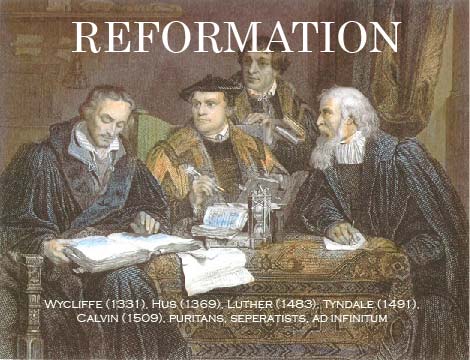
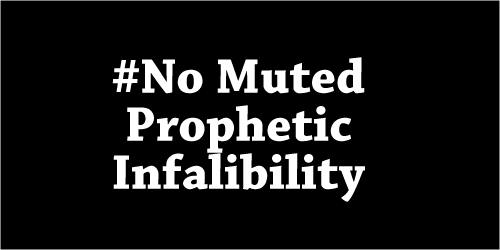
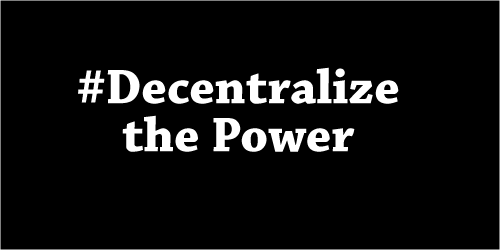

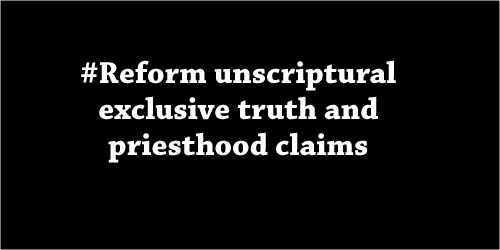

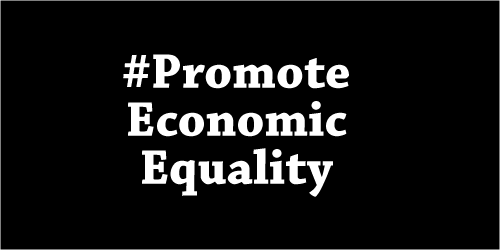
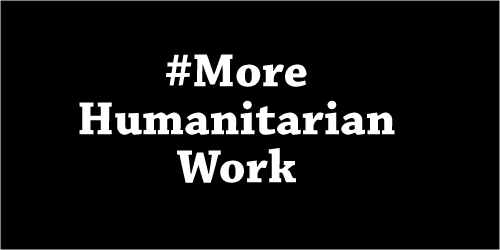
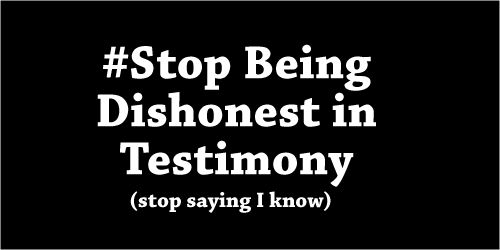
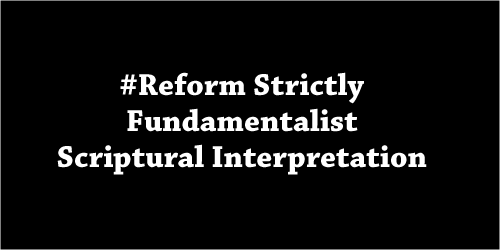
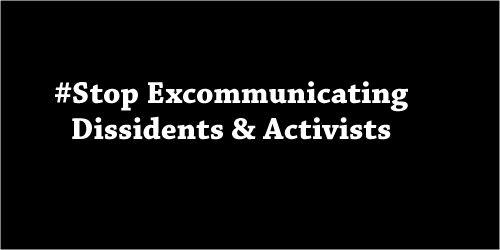
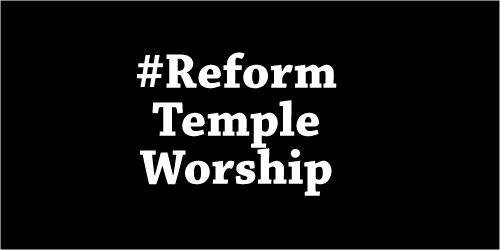
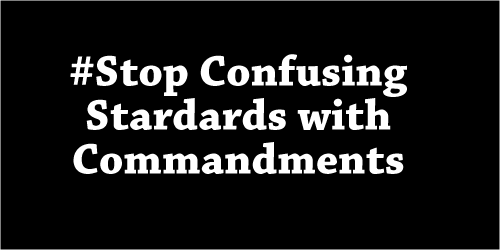
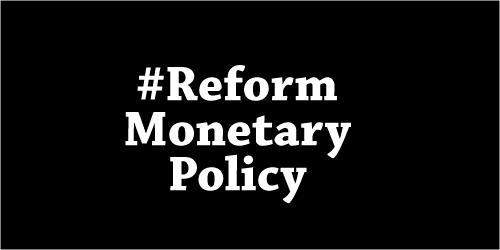
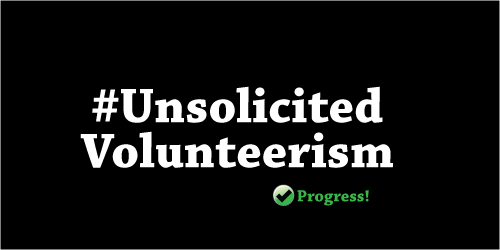

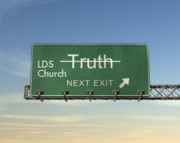

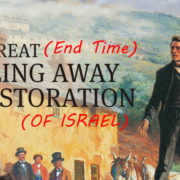



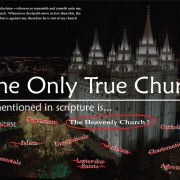

hmmm. I guess that gives us something to think about
You’re going to get yourself ex-communicated with this…
Exed, for offering opinions and quoting scripture… I’d want to be exed from a church that exed people for that…
thought-tyranny=lameness….
A lot of good thoughts and ideas in there. An important idea that is perhaps implicit in the decision to write this piece but that does not seem to be conveyed in the content of the piece is that, as has been said, “power can be taken but not given.” I.e., it is self-defeating to say that the general leadership has overextended its authority and then to imply that the general leadership should restore authority to the membership; the latter implies that the authority actually did lie with the general leadership all along. The membership would need to reassert its authority. A very soft version of this is Ordain Women (which actually recognizes ultimate authority in the general leadership, but which claims the privilege to actively question current policy). Another interesting approach is that of Any Opposed? One straightforward version of this would be a schism. There are surely other approaches as well.
Do you think that it is possible for any of these changes to ever happen?
I do agree that some of these changes could be beneficial, and that many are well supported by scripture. I just don’t see how any of them could ever happen in the church as we know it today.
For instance, I have never once heard in church that the FP, 12, 70, and Stake High Councils are equal in authority. It’s in D&C 107, but everything I’ve ever heard indicates that they are viewed as a strict hierarchy.
It could be that there’s reason for this. Maybe the structure in D&C 107 just doesn’t work on a larger scale. Maybe it’s just historical, and Brigham Young cemented his authority and we’re still living in the aftermath. I really don’t know why D&C 107 is selectively ignored.
Perhaps it doesn’t even matter. Even if we did view them as equal, I really don’t see any situation where the High Councils all over the world would unanimously disagree with the First Presidency or Quorum of the Twelve.
I think things are coming to a head in the Church, and the leadership is being forced to make adaptations or lose the faithful members who want to follow Christ. I expect something akin to a Second Vatican Council at some point.
The biggest blockage to something like an SVC is that the leading councils long ago brought funding and decision making for auxiliaries under their wings, as opposed to allowing independence to entrench analogous to Jesuits and other orders.
However, because of correlation the leading councils became an echo chamber. Few outside voices were entertained, even fewer brought inside. One would hope that reliance on the Lord to give direction would be sufficient; however, given the recent trends I’m not sure the spirit accords with that sentiment and hope.
Something is going to give.
You may be right. I believe that the temple changes in 1990 were similar to this. The Q15 knew that a lot of members were uncomfortable with the temple ceremonies so they removed some of the more uncomfortable parts.
I don’t think that correlation is going to end, or that the church will be significantly restructured, but I do agree that some major changes will probably occur in the next few decades, and that they will probably be in response to the sentiment of the majority of the members.
Many people teach that the church is not a democracy. They may be right, but I think that the doctrine (including D&C 26 and 107) indicate that it should be a lot more democratic than it currently is. I think that Mosiah 29:26 also gives a good reason why being more democratic would not be bad.
Mosiah 29:26 Now it is not common that the voice of the people desireth anything contrary to that which is right; but it is common for the lesser part of the people to desire that which is not right; therefore this shall ye observe and make it your law—to do your business by the voice of the people.
This is especially true when the majority of the people are seeking revelation and confirmation from the spirit when they are wanting change.
The one thing that I’ve been hearing recently that I strongly dislike is the idea that representation should always go from the top to the bottom, and never from the bottom to the top. “Which way do you face?” feels really wrong to me.
You and I are on the same boat.
I heard one rather disgruntled member mention that the brethren don’t face the membership or the Lord, but rather their own arses. I felt a little guilty for laughing.
While I agree some of these would be welcome reformations to the church, they can’t happen till the church admits that it never was what it claims to be. I believe this will never explicitly happen. The church will simply change over the centuries until it’s but a shadow of its former self.
Important, thoughtful stuff. Sadly, it’s a reminder that remarkably similar important thoughts have been ignored for more than a century…
“The members of the Mormon hierarchy continually boast that they are sustained in their power–and in their abuses of that power–“by the free vote of the freest people under the sun.” By an amazing self deception the Mormon people assume that their government is one of “common consent;” and nothing angers them more than the expression of any suspicion that they are not the freest community in the world. They live under an absolutism. They have no more right of judgment than a dead body. Yet the diffusion of authority is so clever that nearly every man seems to share in its operation upon some subordinate, and feels himself in some degree a master without observing that he is also a slave.”
The notion that the slaves laboring at the stake level of the current LDS structure might somehow embrace a religious philosophy of local empowerment seems overly optimistic considering the very real structural barriers to reform inherent to the system.